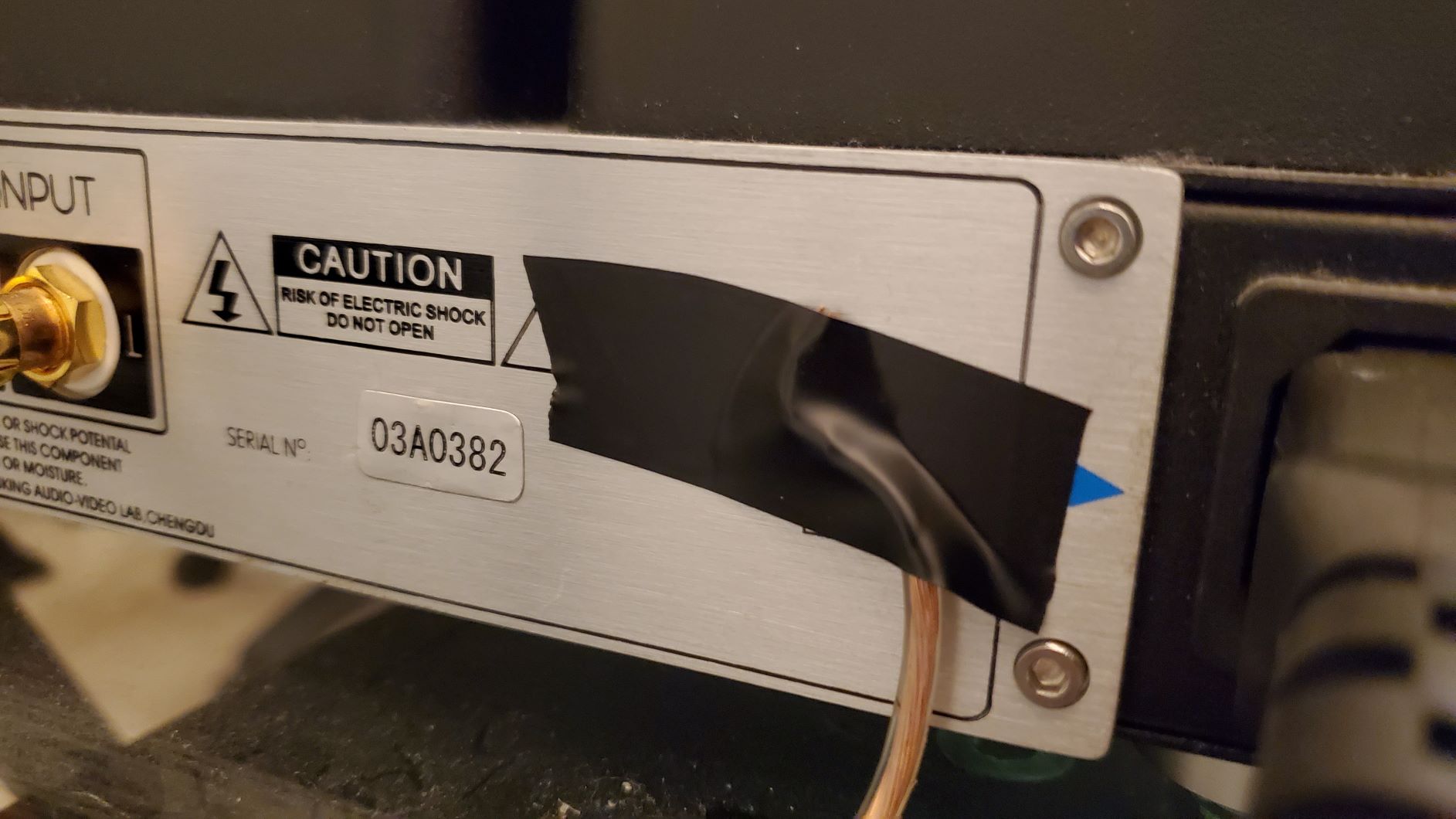BackwardPawn
100+ Head-Fier
- Joined
- Feb 12, 2011
- Posts
- 254
- Likes
- 52
I hope someone on this forum can help me with this one (or provide an alternative solution), as I've been searching forever and can't find the answer. I have a Creative x-fi Titanium HD in my PC, which is connected to the input on a dual mono tube amp. From the start, I've been plagued with noise on the ground wire. I hesitate to call it a ground loop since its not exactly a hum. When I move the mouse or the GPU/CPU starts crunching, it creates a noise that sounds like radio interference. My guess is that the PSU actually sending a signal down the ground wire, but I have no idea.
My initial solution was to use a different plug on the same circuit, which lessened the problem, but didn't make it go away. Solution two was to use a ground loop isolator. The isolator was grounded to the PC case. This worked better than solution one, but degraded the audio quality and didn't eliminate the problem. Solution three was to lift the ground on my amp power cords. The good news is this has completely eliminated the problem--absolutely no noise. The problem now is that I have a high current amplifier with no direct path back to ground connected directly to my head.
My initial logic here is that the box is connected to ground through neutral, therefore there is still a path to ground. The more I think about it, though, the more I'm unsure if I haven't created an unsafe situation. For example, on a ground-fault, will my breaker still open when the extra power is coming back over the neutral wire rather than ground?
I hope I've adequately explained explained the situation and my concern. I'm also hoping that someone tells me I just worry too much and I haven't created a death trap. But if I have created a death trap, how do I fix it without introducing noise into the amp?
My initial solution was to use a different plug on the same circuit, which lessened the problem, but didn't make it go away. Solution two was to use a ground loop isolator. The isolator was grounded to the PC case. This worked better than solution one, but degraded the audio quality and didn't eliminate the problem. Solution three was to lift the ground on my amp power cords. The good news is this has completely eliminated the problem--absolutely no noise. The problem now is that I have a high current amplifier with no direct path back to ground connected directly to my head.
My initial logic here is that the box is connected to ground through neutral, therefore there is still a path to ground. The more I think about it, though, the more I'm unsure if I haven't created an unsafe situation. For example, on a ground-fault, will my breaker still open when the extra power is coming back over the neutral wire rather than ground?
I hope I've adequately explained explained the situation and my concern. I'm also hoping that someone tells me I just worry too much and I haven't created a death trap. But if I have created a death trap, how do I fix it without introducing noise into the amp?
Last edited:








